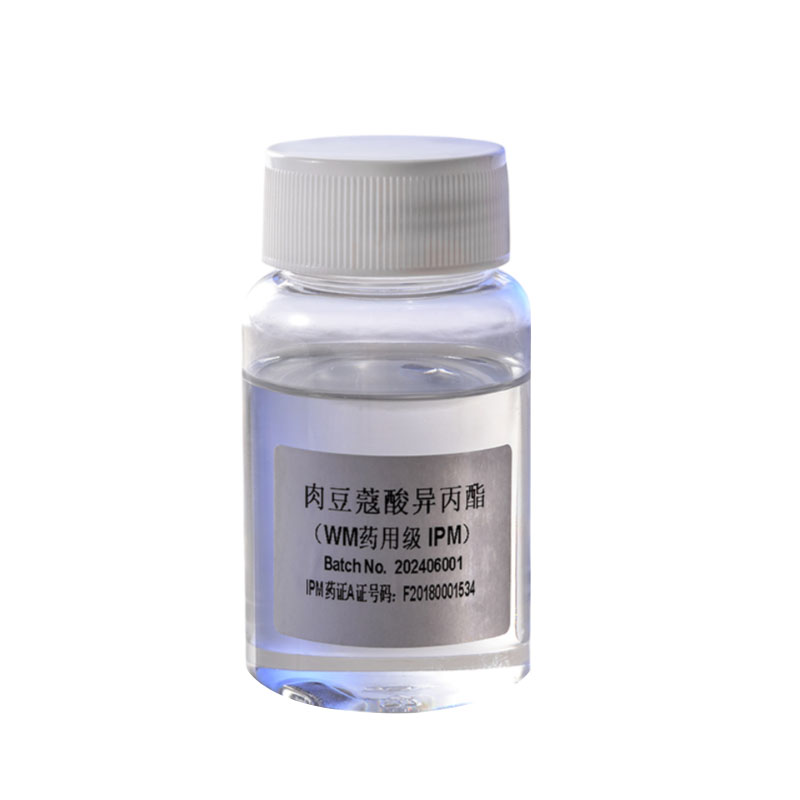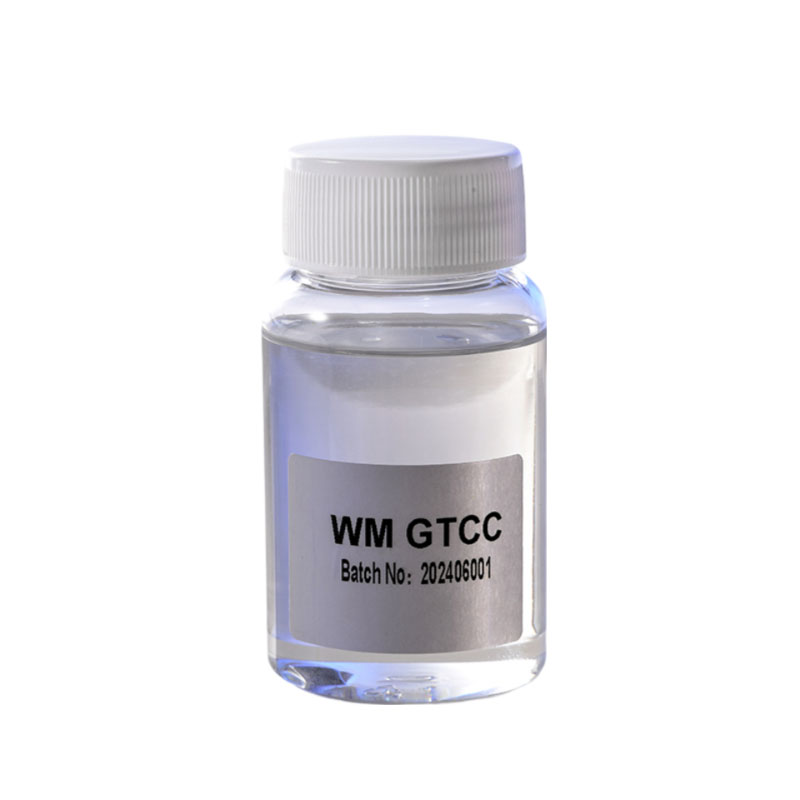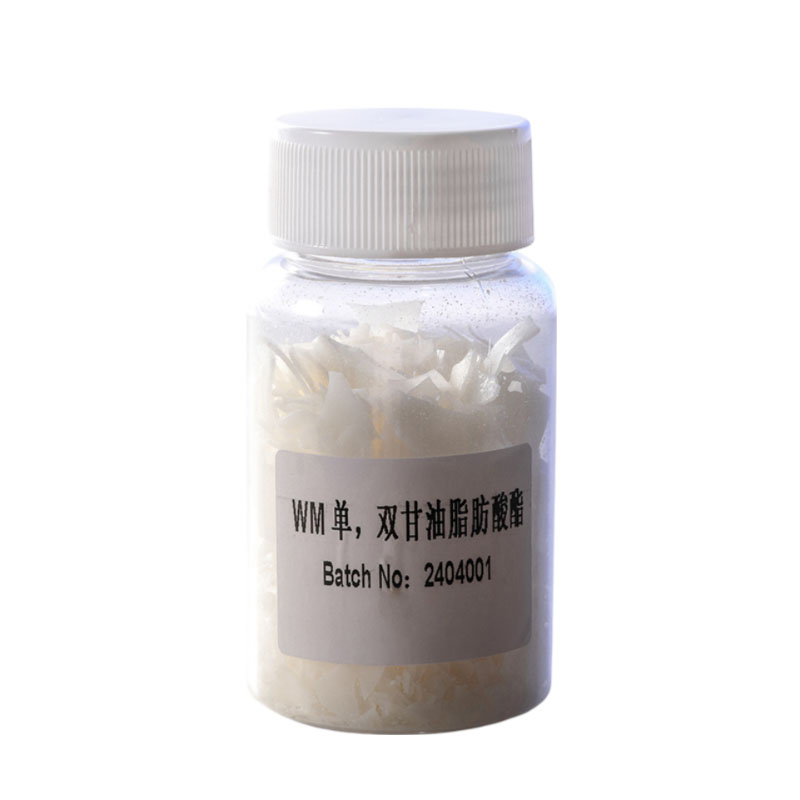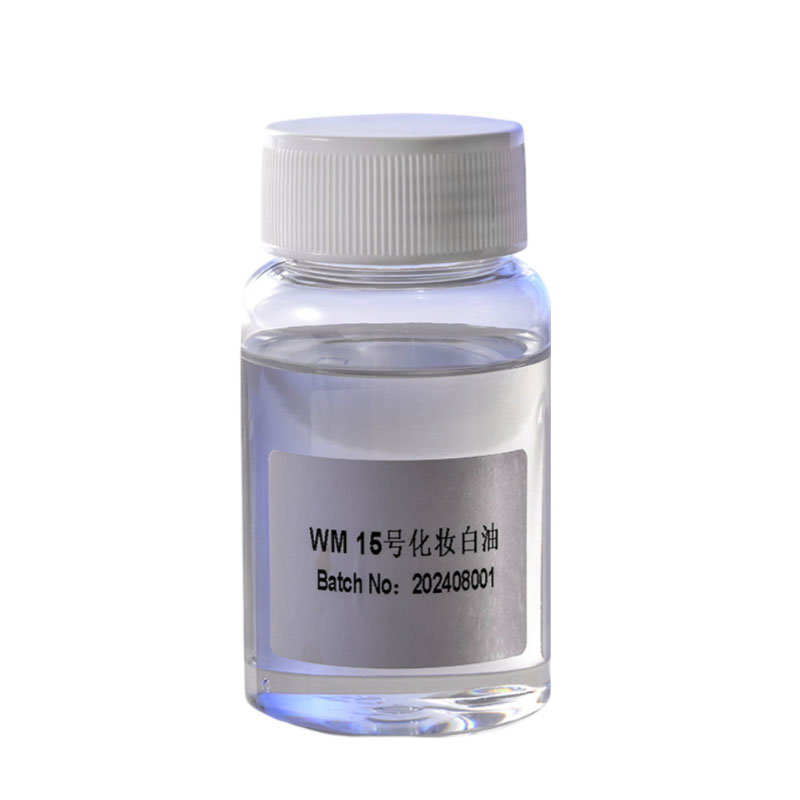Why is pharmaceutical-grade isopropyl myristate (IPM) considered an ideal emollient base for high-end skincare products?
Release Time : 2025-10-13
In the formulation and development of high-end skincare products, selecting the right emollient base is crucial for product feel, efficacy, and stability. Consumers not only seek moisturizing and nourishing results, but also prioritize experiences such as "refreshing, non-greasy," "fast absorption," and "non-acne-causing." Among numerous oil-based ingredients, isopropyl myristate, due to its unique physical and chemical properties and excellent skin feel, has become a core emollient ingredient in many high-end skincare products. It is widely used in products such as face creams, serums, sunscreens, foundations, and hand creams.
1. Low viscosity and high penetration for an extremely refreshing skin feel
IPM is a colorless to pale yellow oily liquid with extremely low viscosity, excellent fluidity, and excellent spreadability. Compared to mineral oil, silicone oil, or vegetable oil, IPM spreads faster on the skin, quickly and evenly covering the skin's surface, reducing the feeling of crumbliness and heaviness. Most importantly, IPM possesses excellent skin penetration. It mimics the structure of sebum and exhibits excellent compatibility with stratum corneum lipids, allowing for easy absorption into the skin without forming a cloaked oil film. This "moisturizing yet non-greasy" property makes it particularly suitable for lightweight lotions, gels, and serums, satisfying modern consumers' preference for a watery texture. It is particularly well-suited for those with combination, oily, and sensitive skin.
2. Excellent solvent and carrier functions enhance the efficacy of active ingredients
IPM is not only an emollient but also a highly effective solubility and delivery medium. While insoluble in water, it is completely miscible with alcohols, ethers, methylene chloride, and various oils, making it highly compatible with complex formulations. Many fat-soluble active ingredients have low solubility in water and are prone to precipitation or uneven distribution. IPM effectively dissolves these ingredients, helping them disperse evenly throughout the system, preventing precipitation and improving product stability. Furthermore, due to its inherently penetrating properties, IPM can act as a "booster," carrying active ingredients deep into the skin's stratum corneum, enhancing their bioavailability and effectiveness. This property is particularly important in topical anti-aging or whitening products, helping to improve transdermal absorption of active ingredients and achieve better skincare results.
3. Improve product texture and enhance user experience
IPM also acts as a wetting agent and emulsion stabilizer in formulas. It reduces the interfacial tension between the oil phase and the emulsifier, facilitating a smoother emulsification process, resulting in finer emulsion particles and a smoother texture. Products containing IPM typically exhibit enhanced gloss and smoothness, leaving skin with a natural, soft glow and enhancing an overall sense of luxury. Furthermore, IPM can significantly reduce the "greasy" feel of oil-based formulas. In products prone to appearing heavy, such as sunscreens and foundations, adding an appropriate amount of IPM can balance the oil content, making the product easier to spread and forming a film quickly, avoiding shine and pore clogging, and improving consumer satisfaction.
4. It helps extend product shelf life and enhance safety.
IPM is not only skin-friendly but also protects the product itself. Research has shown that IPM possesses antibacterial and antioxidant properties, inhibiting the growth of some microorganisms and slowing the oxidative rancidity process of oils, thereby extending the shelf life of cosmetics. This property is particularly valuable for high-end products that do not contain traditional preservatives or utilize mild preservative systems. Furthermore, pharmaceutical-grade IPM boasts high purity, low impurities, and a mild odor. It undergoes rigorous quality control and complies with pharmacopoeial standards, ensuring its safety and stability over long-term use. It is suitable for demanding applications such as sensitive skin care and post-operative cosmetic repair.
In summary, isopropyl myristate (IPM) is considered an ideal emollient base for high-end skincare products due to its multiple advantages, including low viscosity, high penetration, excellent solubility, refreshing skin feel, and formula stability. It not only enhances the product experience but also strengthens the efficacy of the active ingredients and the overall quality of the product.
1. Low viscosity and high penetration for an extremely refreshing skin feel
IPM is a colorless to pale yellow oily liquid with extremely low viscosity, excellent fluidity, and excellent spreadability. Compared to mineral oil, silicone oil, or vegetable oil, IPM spreads faster on the skin, quickly and evenly covering the skin's surface, reducing the feeling of crumbliness and heaviness. Most importantly, IPM possesses excellent skin penetration. It mimics the structure of sebum and exhibits excellent compatibility with stratum corneum lipids, allowing for easy absorption into the skin without forming a cloaked oil film. This "moisturizing yet non-greasy" property makes it particularly suitable for lightweight lotions, gels, and serums, satisfying modern consumers' preference for a watery texture. It is particularly well-suited for those with combination, oily, and sensitive skin.
2. Excellent solvent and carrier functions enhance the efficacy of active ingredients
IPM is not only an emollient but also a highly effective solubility and delivery medium. While insoluble in water, it is completely miscible with alcohols, ethers, methylene chloride, and various oils, making it highly compatible with complex formulations. Many fat-soluble active ingredients have low solubility in water and are prone to precipitation or uneven distribution. IPM effectively dissolves these ingredients, helping them disperse evenly throughout the system, preventing precipitation and improving product stability. Furthermore, due to its inherently penetrating properties, IPM can act as a "booster," carrying active ingredients deep into the skin's stratum corneum, enhancing their bioavailability and effectiveness. This property is particularly important in topical anti-aging or whitening products, helping to improve transdermal absorption of active ingredients and achieve better skincare results.
3. Improve product texture and enhance user experience
IPM also acts as a wetting agent and emulsion stabilizer in formulas. It reduces the interfacial tension between the oil phase and the emulsifier, facilitating a smoother emulsification process, resulting in finer emulsion particles and a smoother texture. Products containing IPM typically exhibit enhanced gloss and smoothness, leaving skin with a natural, soft glow and enhancing an overall sense of luxury. Furthermore, IPM can significantly reduce the "greasy" feel of oil-based formulas. In products prone to appearing heavy, such as sunscreens and foundations, adding an appropriate amount of IPM can balance the oil content, making the product easier to spread and forming a film quickly, avoiding shine and pore clogging, and improving consumer satisfaction.
4. It helps extend product shelf life and enhance safety.
IPM is not only skin-friendly but also protects the product itself. Research has shown that IPM possesses antibacterial and antioxidant properties, inhibiting the growth of some microorganisms and slowing the oxidative rancidity process of oils, thereby extending the shelf life of cosmetics. This property is particularly valuable for high-end products that do not contain traditional preservatives or utilize mild preservative systems. Furthermore, pharmaceutical-grade IPM boasts high purity, low impurities, and a mild odor. It undergoes rigorous quality control and complies with pharmacopoeial standards, ensuring its safety and stability over long-term use. It is suitable for demanding applications such as sensitive skin care and post-operative cosmetic repair.
In summary, isopropyl myristate (IPM) is considered an ideal emollient base for high-end skincare products due to its multiple advantages, including low viscosity, high penetration, excellent solubility, refreshing skin feel, and formula stability. It not only enhances the product experience but also strengthens the efficacy of the active ingredients and the overall quality of the product.









